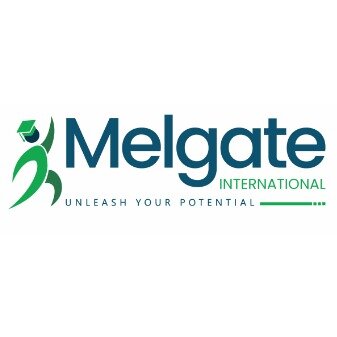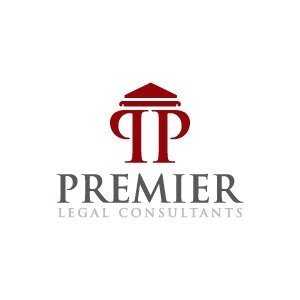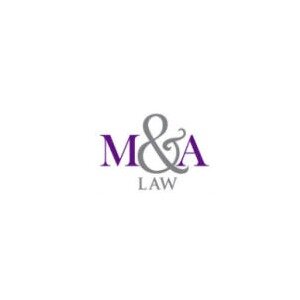Best Civil & Human Rights Lawyers in Colombo
Share your needs with us, get contacted by law firms.
Free. Takes 2 min.
List of the best lawyers in Colombo, Sri Lanka
About Civil & Human Rights Law in Colombo, Sri Lanka
The Constitution of Sri Lanka is the supreme law of the land, which assures a wide range of civil and human rights to its citizens. These include freedom of thought, conscience, and religion, the right to equality of opportunity in civil employment, freedom from torture, and the right to personal liberty. All of these rights are applicable in Colombo, Sri Lanka's commercial and judicial capital.
Why You May Need a Lawyer
In the field of civil and human rights, you may need assistance from a lawyer in a variety of scenarios. Unlawful detention, cases of discrimination, instances of police brutality, issues related to freedom of speech and expression, and difficulty in accessing public services due to discrimination are all scenarios where a lawyer might be needed. Legal consultation can help clarify your rights, offer advice on how to proceed, and provide representation if necessary.
Local Laws Overview
Article 12 to 17 of the Sri Lankan Constitution provides the foundation of Civil & Human Rights Law, prohibiting discrimination based on race, religion, language, caste, sex, political opinion, place of birth, or any such grounds. The Supreme Court of Sri Lanka, located in Colombo, has the authority to hear fundamental rights cases directly. Moreover, Sri Lanka is a signatory to several international human rights conventions such as the International Covenant on Civil and Political Rights (ICCPR) which are effectively part of the national legal framework.
Frequently Asked Questions
What can I do if my human rights are violated?
Anyone who thinks their rights have been violated can file a Fundamental Rights application directly at the Supreme Court. You can also contact a lawyer or a local human rights organization who can guide you in the process.
How does the Constitution of Sri Lanka protect my rights?
The Constitution provides a comprehensive list of rights that are fully protected. These rights are enforceable, and any breaches can be reported to the Supreme Court.
Are my rights the same throughout the country?
Yes, the rights guaranteed under the Sri Lankan constitution apply equally to all citizens, throughout the country, including in Colombo.
Can I be discriminated against based on my gender, race, or religion?
No, discrimination on any of these grounds is strictly prohibited under Sri Lankan law and is sanctioned by the Constitution.
What is the role of the Supreme Court in protecting my rights?
The Supreme Court is the highest judicial authority in Sri Lanka. It has the power to investigate and decide on cases regarding fundamental rights violations, ensuring the rights of every citizen are protected and upheld.
Additional Resources
Sri Lanka has a number of governmental and non-governmental organizations dedicated to safeguarding and promoting civil and human rights. These include the Human Rights Commission of Sri Lanka, the Ministry of Justice, and several local and international human rights organizations operating in Colombo like the International Committee of the Red Cross (ICRC) and Amnesty International.
Next Steps
If you think your rights have been violated, contact a civil & human rights lawyer immediately. They can advise you on the best course of action and represent you in court if necessary. Local human rights organizations can also provide assistance and resources in navigating the legal system. If you find understanding the legal terms and processes difficult, a lawyer can simplify the process and guide you through it.
Lawzana helps you find the best lawyers and law firms in Colombo through a curated and pre-screened list of qualified legal professionals. Our platform offers rankings and detailed profiles of attorneys and law firms, allowing you to compare based on practice areas, including Civil & Human Rights, experience, and client feedback.
Each profile includes a description of the firm's areas of practice, client reviews, team members and partners, year of establishment, spoken languages, office locations, contact information, social media presence, and any published articles or resources. Most firms on our platform speak English and are experienced in both local and international legal matters.
Get a quote from top-rated law firms in Colombo, Sri Lanka — quickly, securely, and without unnecessary hassle.
Disclaimer:
The information provided on this page is for general informational purposes only and does not constitute legal advice. While we strive to ensure the accuracy and relevance of the content, legal information may change over time, and interpretations of the law can vary. You should always consult with a qualified legal professional for advice specific to your situation.
We disclaim all liability for actions taken or not taken based on the content of this page. If you believe any information is incorrect or outdated, please contact us, and we will review and update it where appropriate.
Browse civil & human rights law firms by service in Colombo, Sri Lanka
Colombo, Sri Lanka Attorneys in related practice areas.

















